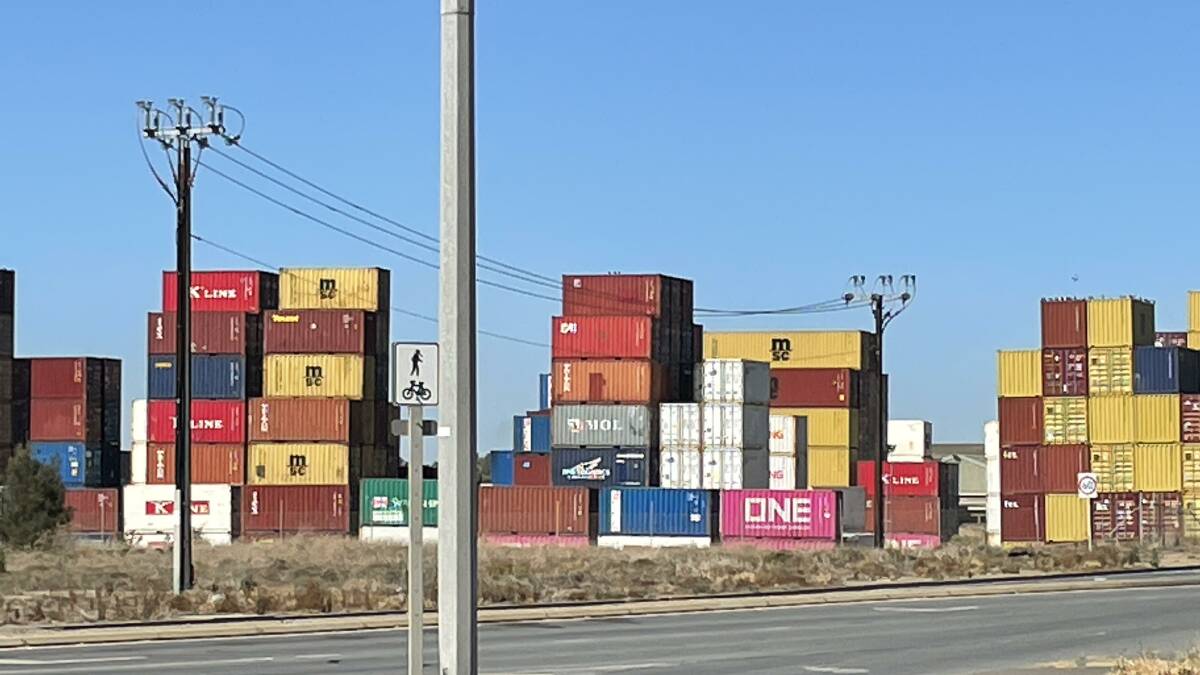
SHIPPING containers are set to become more readily available and prices are set to drop as a result of easing of key constraints.
Christian Roeloffs, cofounder and CEO, Container xChange, said China coming out of COVID-19 inspired lockdown would play a big role in seeing more containers come online.
Initially, Mr Roeloffs said Container xChange expected prices to rise as those with immediate delivery needs would compete hard, but in the medium term he said there was a downward trend.
He said the impact of the Chinese lockdowns could not be underestimated.
"Not only was Shanghai in lockdown, right now Beijing and its biggest harbour Tianjin is still in lockdown, so we are expecting a surge of containers to hit the Transpacific region," Mr Roeloffs said.
"All cities are so interlinked that it influences the whole of China," he said.
The lack of availability of containers has had a big influence on Australian agriculture.
In grain, there has been a move towards small hold bulk shipments, with smaller consignments of 5000 tonnes or even less that would normally be exported boxed in containers being sent via secondary holds in bulk ships.
Rabobank also believes container prices are set to come back but warns there will be no return to pre-pandemic values.
In its reports into global ocean freight, the agribusiness banking giant said Australia's agricultural sector can expect to contend with elevated ocean container for at least another year before prices stabilise.
RaboResearch global supply chain analyst Viet Nguyen said while global container freight prices are set to continue to gradually decline over the coming 12 months from the "irrational" highs reached late last year, they are not expected to return to pre-pandemic lows with the global container shipping industry now impacted by broader structural factors, including a weaker global economy, higher operational costs, geopolitical uncertainty and imbalanced trade flows.
The uncertainties have also hit efficiency of shipping, with Rabo reporting that the reliability of ocean container freight schedules had dropped from almost 80 per cent pre-pandemic to approximately 30 per cent as disruptions and uncertainties created issues.
Mr Nguyen said prices were unlikely to ever drop back to pre-COVID levels of around $450 a container but would come back from current levels of $1040-$1200/container.
But he said there was evidence costs could never fully drop back.
"There are risks with higher energy costs and sustainability regulations," Mr Nguyen said.
In the short-term, both Container xChange and Rabobank expect congestion to remain at key ports.
"While various processes have been implemented to improve efficiency, structural factors - including a lack of coordination between ocean and land transport, labour shortages with uncertain union negotiations, disrupted trade flow and a general lack of automation continue to expose vulnerability at ports," Rabo's report authors said..
Mr Nguyen said longer term Australian agriculture would benefit from strategic partnerships and long-term contracts with logistics services.
"This can be key to ensuring service reliability and minimising disruptions to their supply chains," he said.


